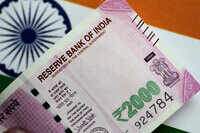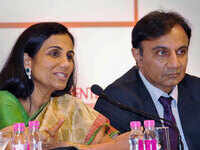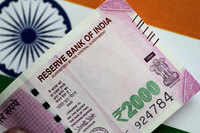Government plans interim budget next year
TNN | Updated: Nov 23, 2018, 11:02 IST (Representative image)
(Representative image)NEW DELHI: The government is planning to stick to convention and present an interim budget for 2018-19, amid indications that it may not be averse to initiating some tax-related changes, ahead of next year’s general elections.
Government sources said in the past, only interim budgets were presented in Parliament ahead of polls, along with a demand for grants, which helps the government get authorisation to carry with regular spending till the election is over and a new government is in the saddle. They indicated that the Narendra Modi government may carry forward the tradition.
At the same time, they also pointed out that in 2009, when Pranab Mukherjee announced a stimulus, he had added tax proposals, while responding to the interim budget in Parliament. In 2014, P Chidambaram had reduced the excise duty on automobiles, capital goods and consumer non-durables, arguing that these were interventions that were warranted due to the economic situation. Rates were also rejigged for mobile handsets.
In January 2004, before elections were announced ahead of schedule, Jaswant Singh had announced major initiatives, including tax changes, which were billed as a “mini budget”. With the introduction of GST, finance minister Arun Jaitley does not need Parliamentary approval to tweak indirect taxes. This decision can be taken by the GST Council, headed by him with state finance ministers as its members.
Government sources said in the past, only interim budgets were presented in Parliament ahead of polls, along with a demand for grants, which helps the government get authorisation to carry with regular spending till the election is over and a new government is in the saddle. They indicated that the Narendra Modi government may carry forward the tradition.
At the same time, they also pointed out that in 2009, when Pranab Mukherjee announced a stimulus, he had added tax proposals, while responding to the interim budget in Parliament. In 2014, P Chidambaram had reduced the excise duty on automobiles, capital goods and consumer non-durables, arguing that these were interventions that were warranted due to the economic situation. Rates were also rejigged for mobile handsets.
In January 2004, before elections were announced ahead of schedule, Jaswant Singh had announced major initiatives, including tax changes, which were billed as a “mini budget”. With the introduction of GST, finance minister Arun Jaitley does not need Parliamentary approval to tweak indirect taxes. This decision can be taken by the GST Council, headed by him with state finance ministers as its members.
Download The Times of India News App for Latest Business News.










































All Comments ()+^ Back to Top
Refrain from posting comments that are obscene, defamatory or inflammatory, and do not indulge in personal attacks, name calling or inciting hatred against any community. Help us delete comments that do not follow these guidelines by marking them offensive. Let's work together to keep the conversation civil.
HIDE